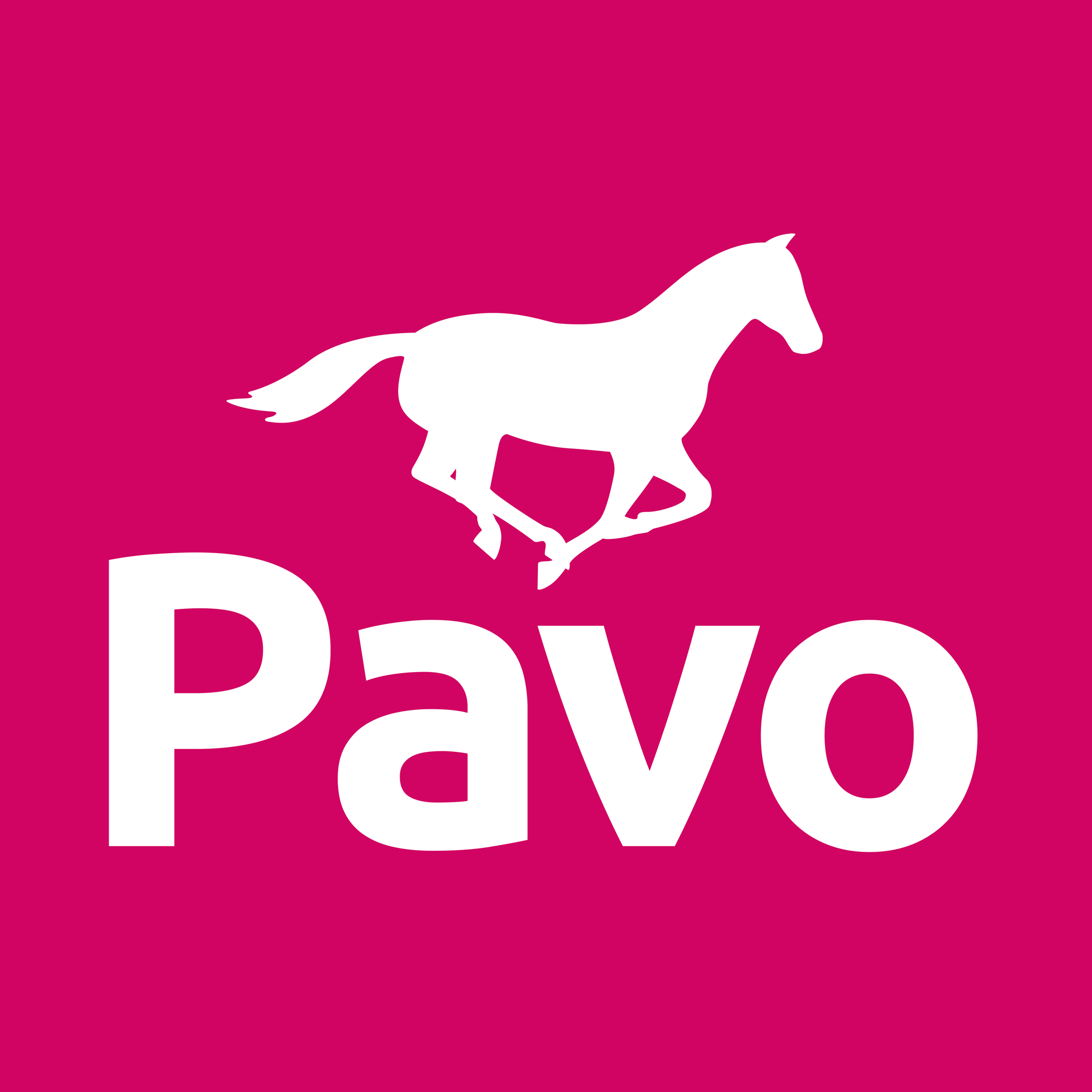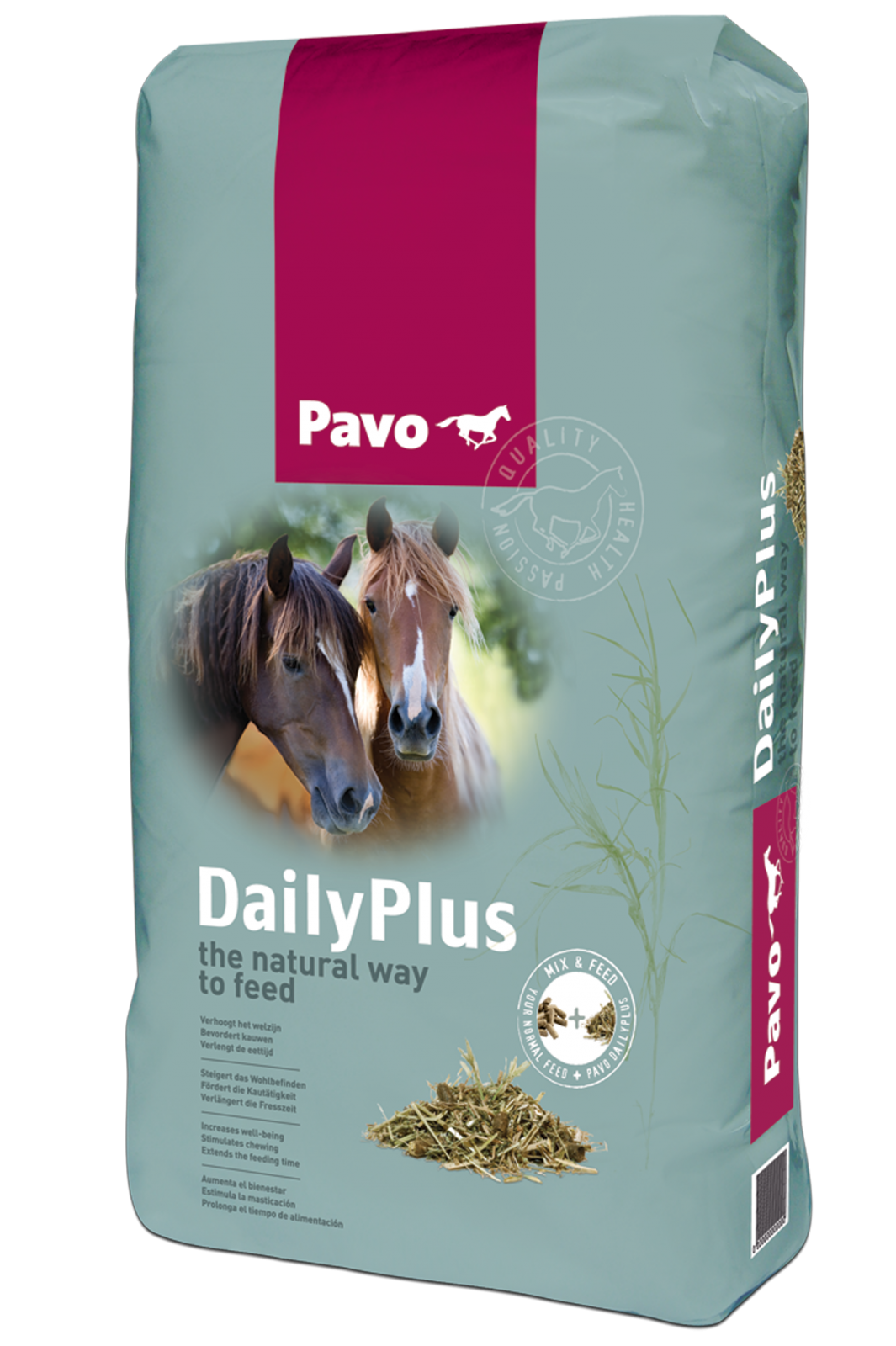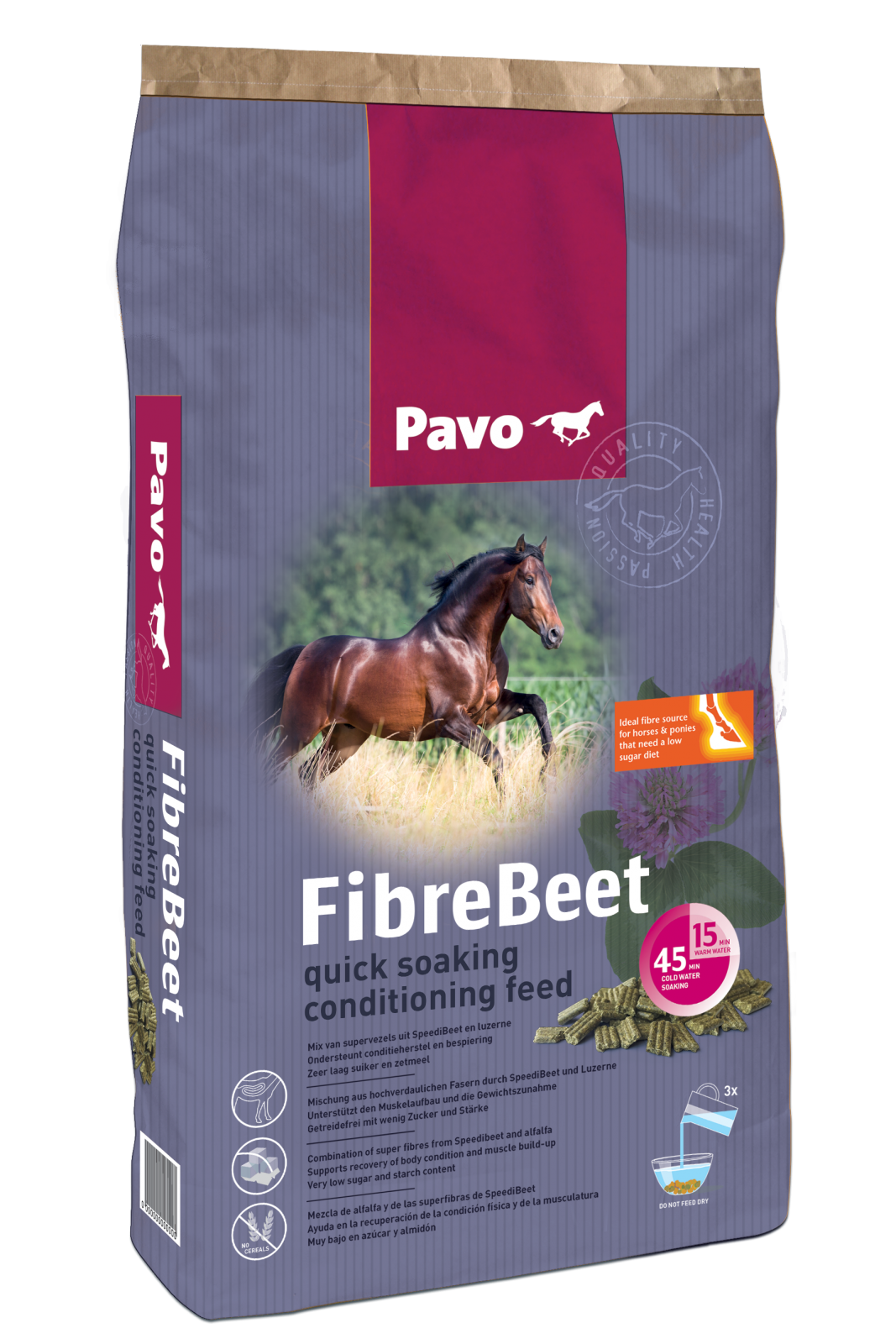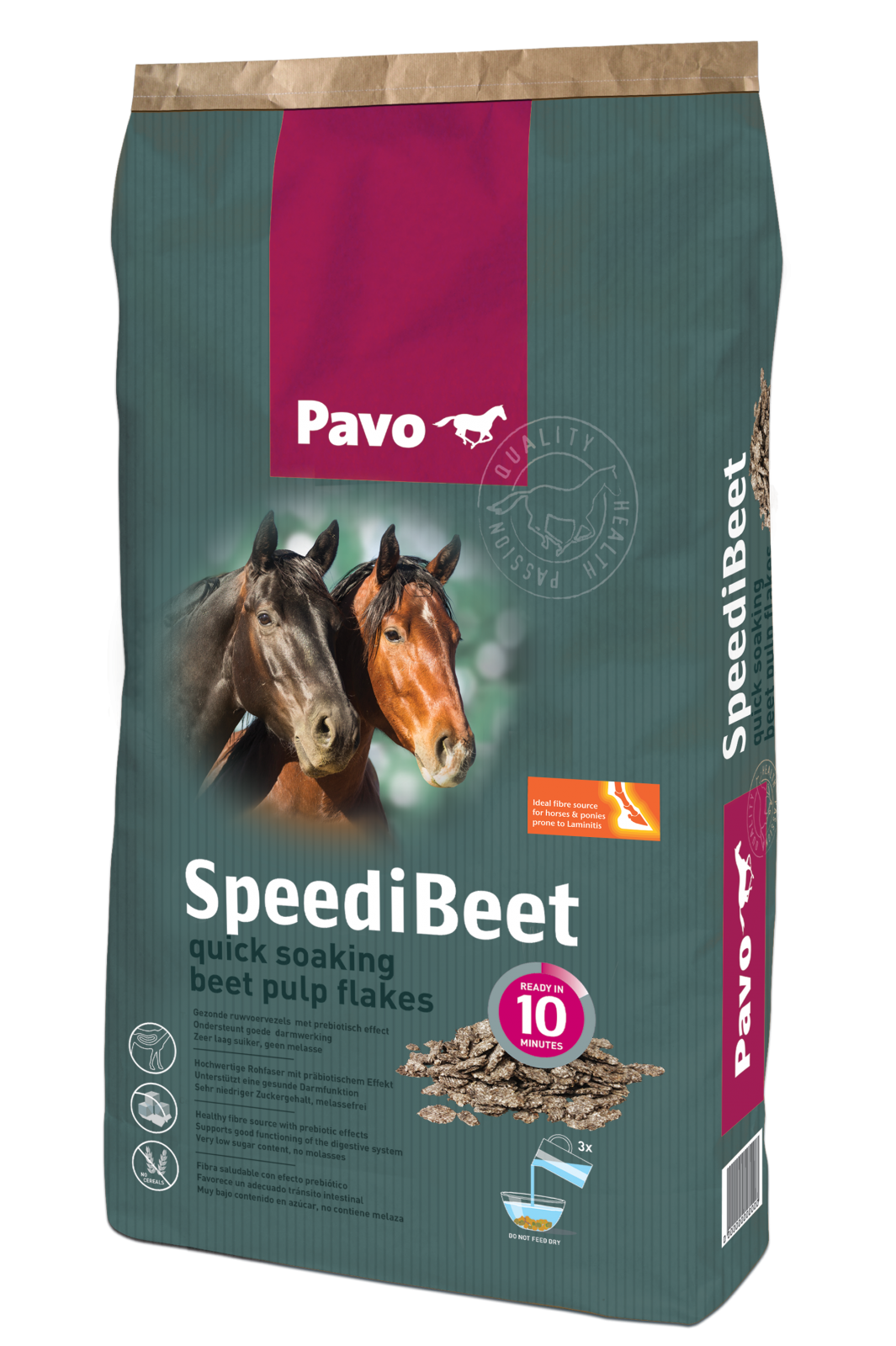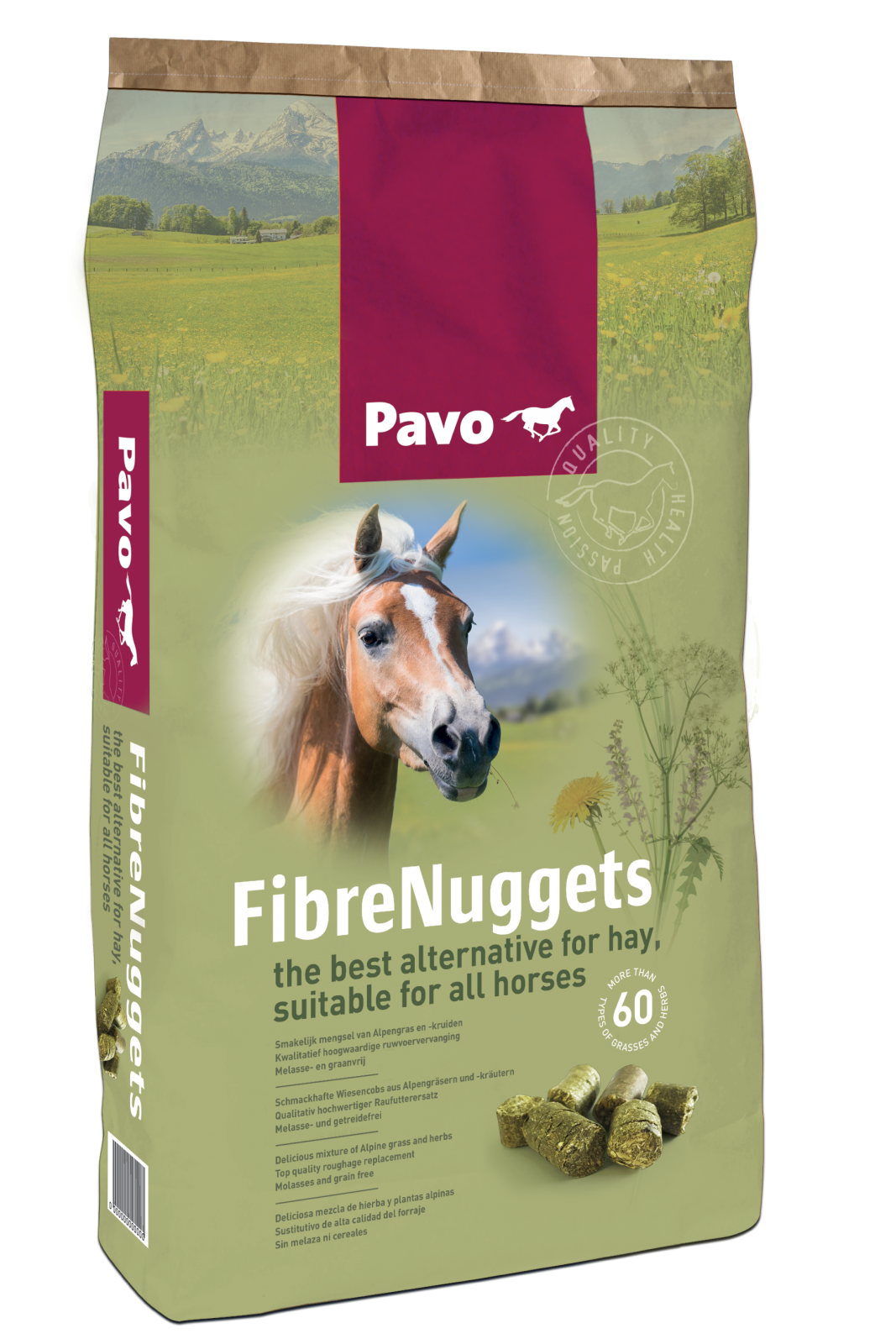Roughage for older horses
Roughage is the most important food for horses and the basis for every ration. A horse normally needs 1.5% of its body weight in roughage, but this can even be as much as 2% for older horses. This means a 600 kg horse should be eating around 12 kg of roughage a day.
We divide horses into three categories where roughage is concerned: those with a good dental function, those with a reduced dental function and horses with virtually no dental function. The type of roughage is different for every group.
There are three elements we need to consider in terms of composition when it comes to roughage.
- The nutrient intake will decrease
- The dental function will deteriorate
- The digestion of fibres is less optimal
Fibre is of vital importance to all horses. This will normally come from roughage like grass, hay or haylage. But you will need to start looking for different sources of fibre once the teeth have become so bad that the horse can no longer eat this.
Know what you're feeding
A quickscan can be used to find out the composition of your hay. An older horse’s roughage should preferably have a different composition to that given to a younger horse. The reason for this is that an older horse has a high protein requirement and it will digest sugars and starch less effectively. So these need to be reduced.
Has the quickscan shown that the sugar content in your roughage is too high? Then you can try soaking the roughage for 30 minutes. This will ensure most of the water-soluble sugar will seep out.
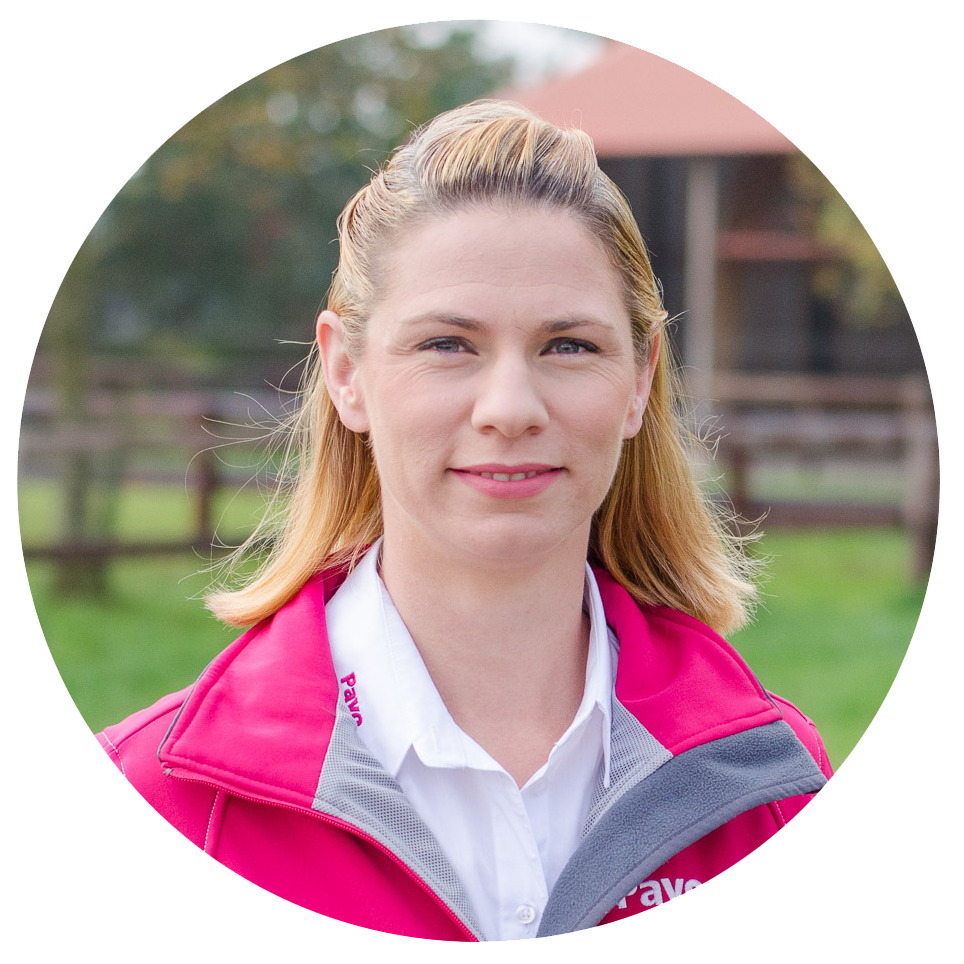
“Make sure the roughage for your old horse is easily accessible. Don’t use slow feeders. Have several horses been put out to pasture? Then prepare the same number of roughage places, plus one extra”
Nutritionist and Vet Veerle Vandendriessche
Good dental function
You can simply continue giving your horse everything he enjoys if he still has a good dental function: hay, silage, straw and grass. The only thing you will need to keep an eye on is whether the composition of your roughage also suits older horses. An older horse will therefore require more than a younger horse. Your horse’s condition will naturally dictate this. Don’t suddenly start offering a great deal more roughage if your horse is still in a perfectly good condition. Carefully assess your horse and adjust the feed accordingly. You can simply continue giving your horse concentrate and/or muesli. Do make sure the composition of any of these foods is suitable for older horses.
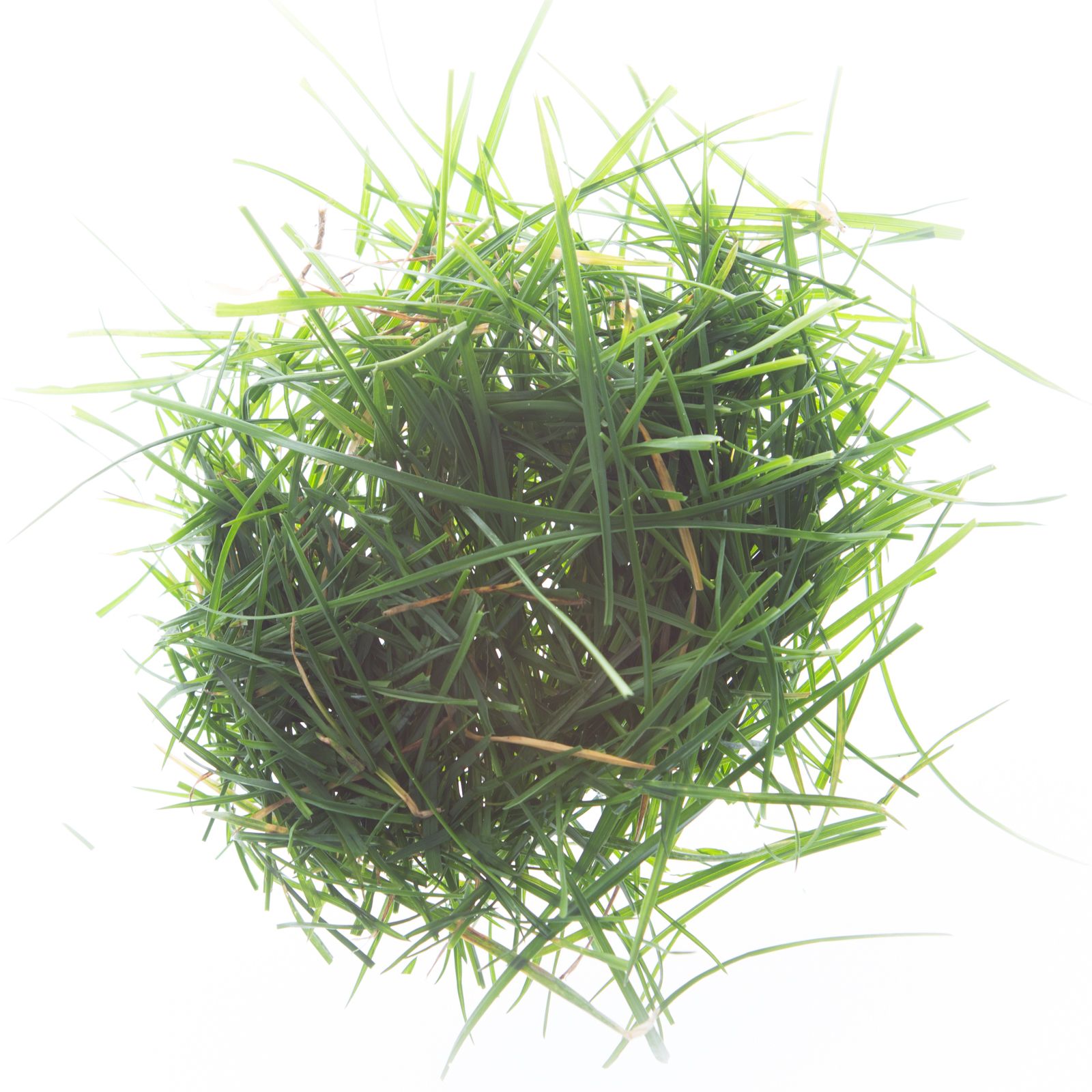
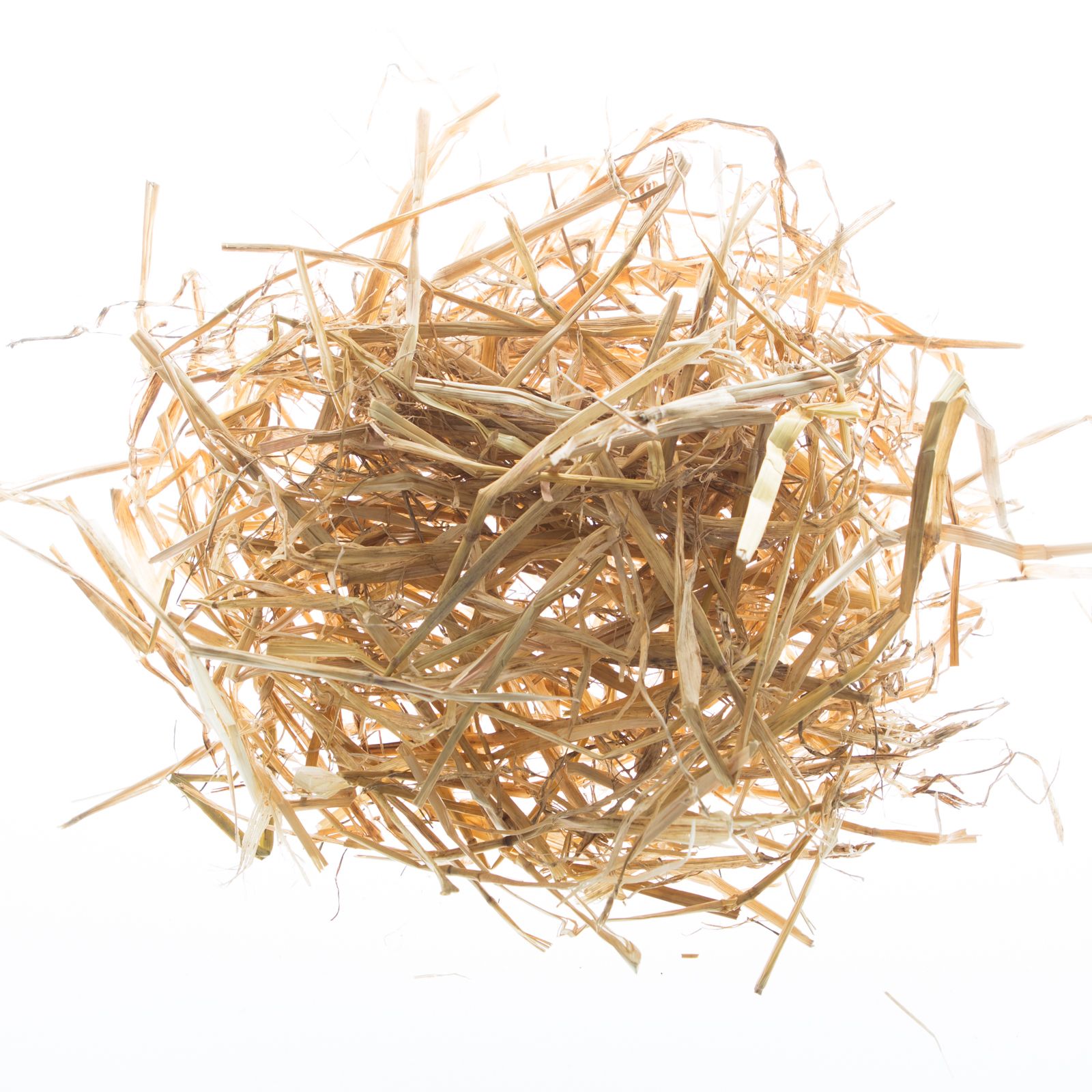

Reduced dental function
Horses with a poor chewing ability have a great deal of trouble eating long-stalked roughage. So in order to make sure your horse gets enough fibre, you are best off giving short chopped roughage. The length of the fibres your horse can still chew is determined by the degree of tooth wear. You will need to bear in mind that there will still need to be some contrast in the teeth in order for the horse to be able to grind the fibres. It’s best to give roughage with a maximum length of approximately 3 centimetres in case of a reduced dental function. This can include: Chopped grass, Chopped alfalfa, a combination of: Pavo DailyPlus, grass: putting the horse out to pasture as often as possible The concentrate can still be given without first being soaked. These horses can still chew enough to be able to process kibble and muesli. Hay is always a good idea too. These horses may no longer be able to eat this very well, but they’ll certainly get plenty of satisfaction from being able to nibble on the hay. It’s therefore important for your horse’s well-being to offer him hay.
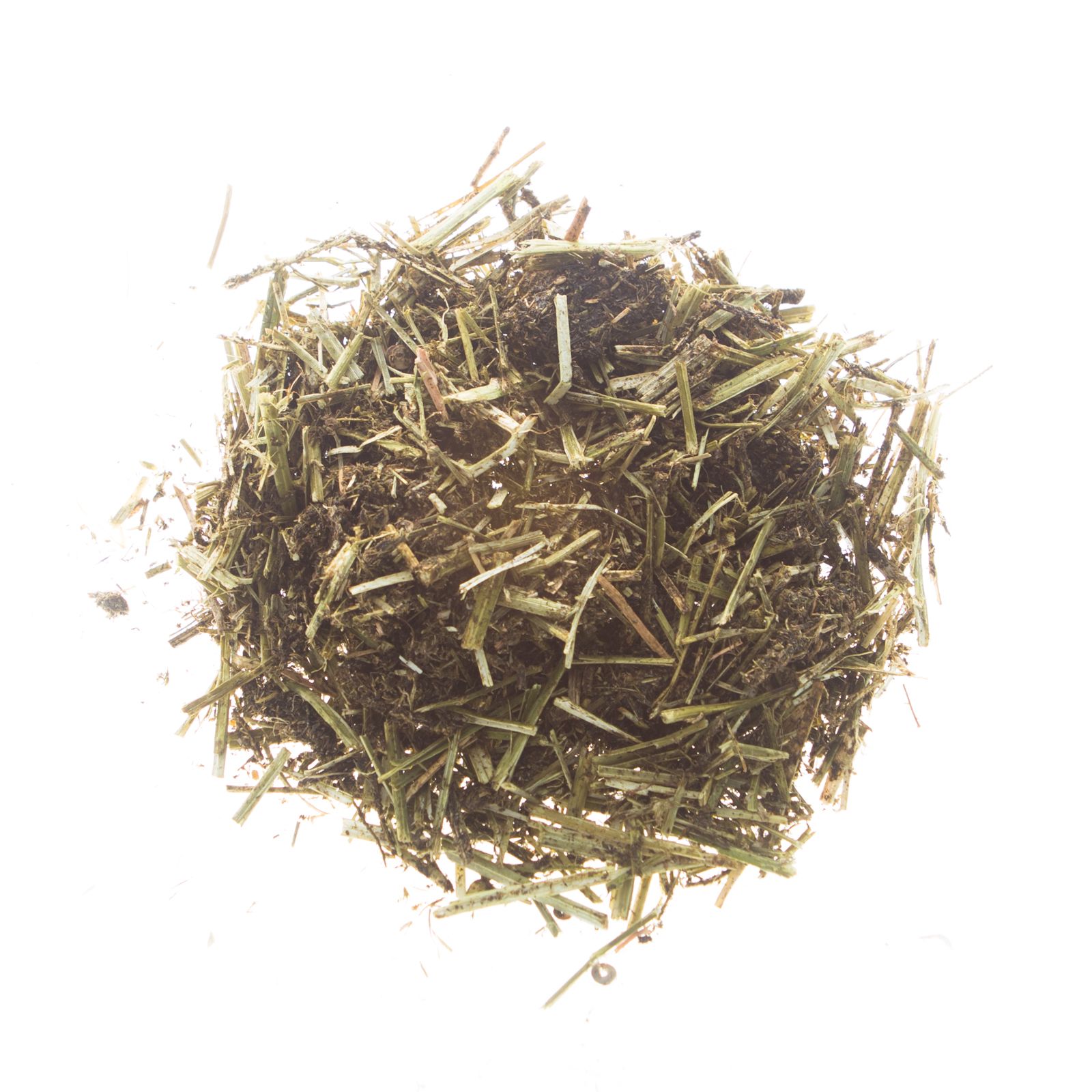

No dental function
Horses which can no longer chew at all will no longer take in enough roughage. It may look like they’re nibbling away on something all day long, whilst in reality they’re hardly eating anything. If you don’t intervene in time, your horse will not get enough nutrients and may even starve. The roughage for the horse can be no bigger than 1 cm. This will ensure the bowels can digest the fibre and absorb the necessary nutrients. This will allow you to prevent intestinal disorders and a very emaciated horse. A special diet with soaked roughage substitutes can offer the perfect solution! We don’t recommend feeding hay to horses without any dental function. They can no longer effectively chew and there is therefore too much of a risk of a blockage in the oesophagus.
Usually your old horse needs a supplement to his or her roughage. Read more about this on our page about supplementary feeding.
